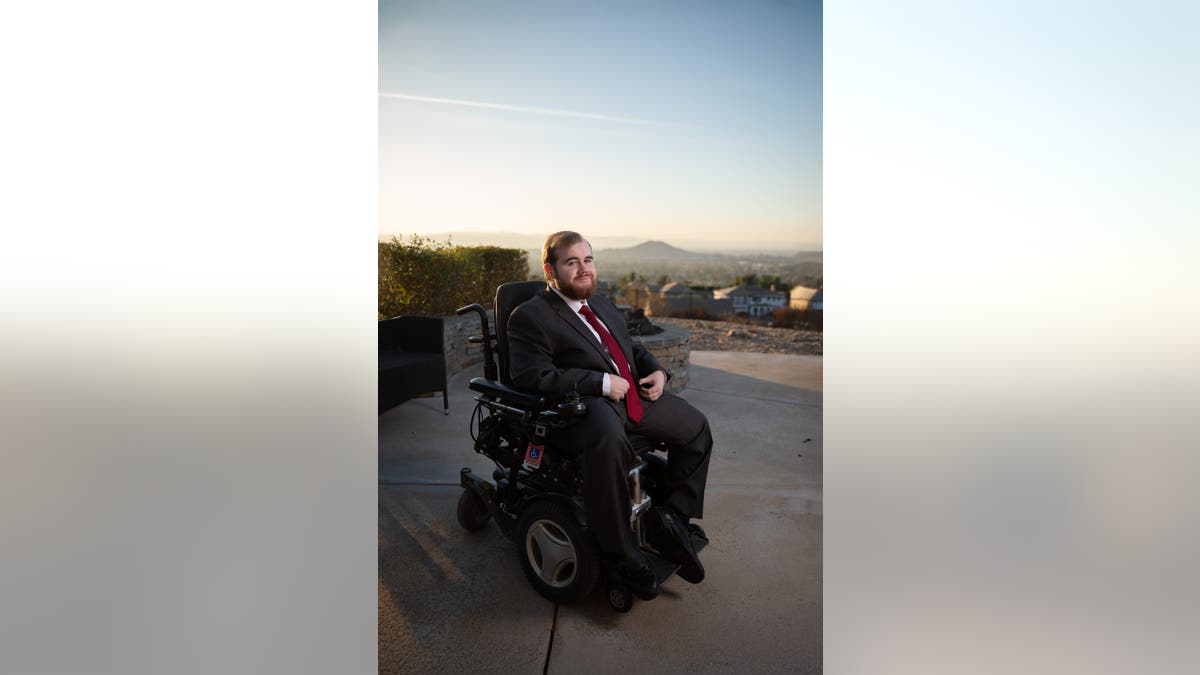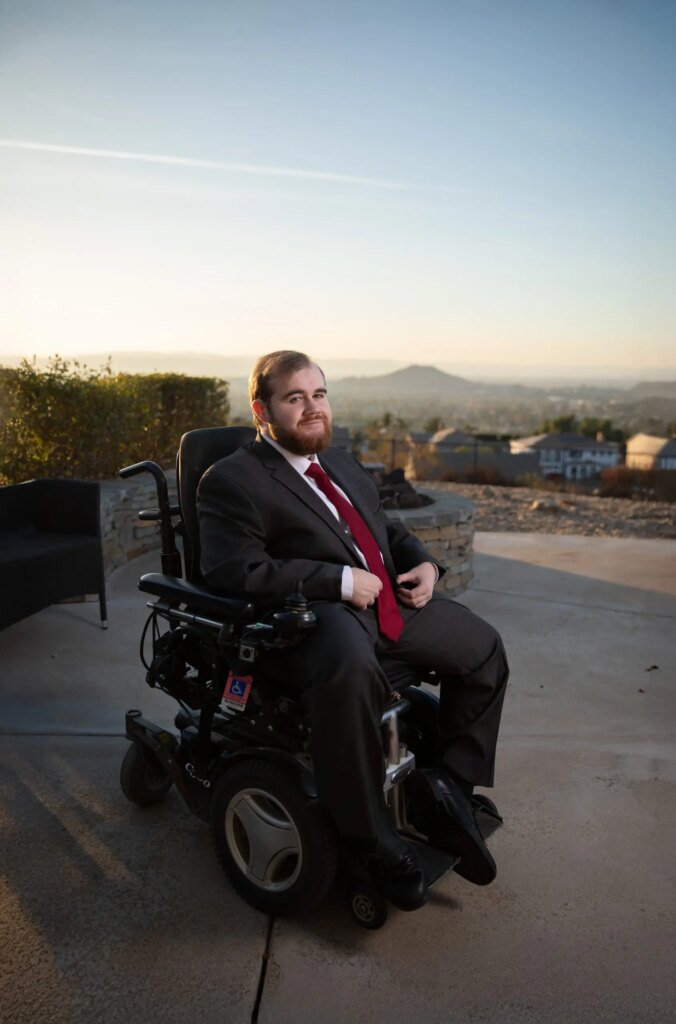NEWYou can now listen to Fox News articles!
At age 6, I was diagnosed with a fatal disease. At age 11, I lost my ability to walk. Today, I’m 23 and am fighting for my life — and for all of those who are desperate for a cure.
Tragically, the federal government is standing in the way.
I’m not alone; tens of millions of Americans suffer from rare diseases. And while I believe we have entered a “Golden Age” of personalized medicine tailored around a patient’s DNA, regulatory roadblocks often force us to wait years to access treatments that could help. We need to break through this logjam so patients can access cutting-edge treatments today.
MAN WITH STAGE 4 CANCER RAISES $150K FOR EXPERIMENTAL TREATMENT
My disease is Duchenne muscular dystrophy (DMD) — a rare, genetic disorder that causes my muscles to waste away. Patients lose their ability to walk around the ages 9 to 12 and become completely dependent on a power-wheelchair. Then they noticeably lose function of their arms in their teens, and eventually lose their life in their mid-20s as the muscles responsible for breathing are affected, as well as the heart muscle.

Elijah Stacy is a bestselling author and biotech consultant fighting against Duchenne Muscular Dystrophy. (Goldwater Institute)
I decided early on not to let this disease define me — or stop me. At 15, I founded a nonprofit organization called Destroy Duchenne. I went on to become a bestselling author, public speaker, Hollywood writer and producer, biotech consultant to five companies, investor, and recognized Key Opinion Leader (KOL) in DMD.
Yet I still know the brutality and pain this disease causes. My younger brother, who is 17, also has DMD. So did my other younger brother, who passed away from the disease at age 14. Duchenne affects not just the person with the disease, but everyone around them, as it steals the person away from those who love them.
Fortunately, I’m optimistic about innovation in the medical field. As someone who works in the biotech industry, I know of countless advances currently in the works that are going to change the way we deal with diseases. With the rise of AI, even more progress can be made faster and cheaper, and drugs can be even safer from their inception.
What is critical with rare genetic diseases is time. It’s nearly always better to intervene earlier, as it is easier to preserve existing function and overcome some of the effects of the disease. For example, younger patients with Duchenne tend to have more muscle.
CLICK HERE FOR MORE FOX NEWS OPINION
They also tend to have less fibrosis (scar tissue) and fat infiltration — two biological effects of the disease as time progresses, which further reduce mobility. Tragically, some patients are at the end of their life, where days can make the difference between living or dying.
On average, clinical trials for new treatments take around 10 years to complete. By then, a patient’s disease may have progressed beyond the point where they can be meaningfully treated — or they may have even passed away. We need legislation like the “Right to Try for Individualized Treatments.” It’s an innovative reform that’s now law in six states that puts the power into the hands of the doctor and patient to make these critical decisions about when to try investigational new drugs that are customized based on genetics.
Right now, I can be willing to try a new treatment, the manufacturer of the treatment can be willing to allow me to try it, and a doctor can be willing to administer it — yet Uncle Sam is not willing and stops me from receiving a lifesaving treatment.

Elijah Stacy (right) looks over at his brother Kai. They are both battling against Duchenne Muscular Dystrophy. (Goldwater Institute)
CLICK HERE TO GET THE FOX NEWS APP
This is completely backwards. After all, doctors know their patients better than a far-off bureaucrat who doesn’t even know the patient exists. Why should I have to beg the federal government for permission to try to save my own life?
The reality for me is that I’m going to die, likely before I reach middle-age. The average lifespan for people with Duchenne is 25. But it doesn’t have to be that way.







